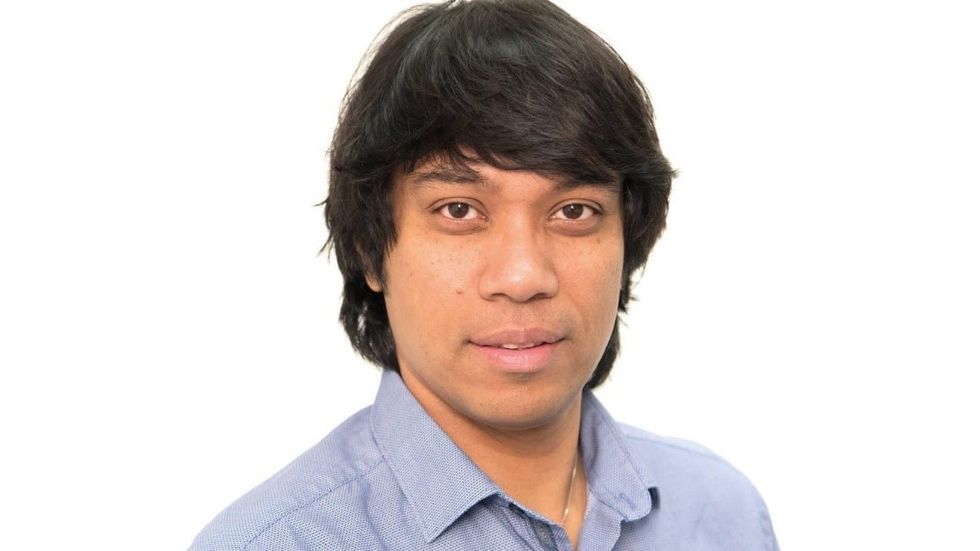AN artificial pancreas trial currently running in the UK will help the healthcare sector leap to a new digital era, the NHS national speciality adviser for diabetes has said.
As many as 1,000 NHS patients with type 1 diabetes are taking part in a study where their blood sugar levels will be monitored and the amount of insulin given via a pump will be automatically adjusted. The trial started on July 19 at 25 adult centres, and six paediatric centres around the country; it is expected to be completed by August 2022.
Professor Partha Kar told Eastern Eye, “Patients can go home after the set-up is done (at a clinic). We can monitor data remotely, from the clinic. This will be the first trial of this kind and be the future for clinical trials going ahead. I think this’ll be a new digital chapter for the healthcare sector.

“The pandemic has fastened the change. And I think this is a good start.”
People with type 1 diabetes – who comprise eight per cent of people with diabetes in the UK - cannot produce enough insulin. They need daily doses of the hormone to keep blood sugar levels under control, delivered via an injector pen or a pump.
Under the new ‘closed loop technology’ trial, finger prick tests can be eliminated, and life-threatening hypoglycaemic attacks could be prevented.
Kar explained how the technology works.
“It’s called an artificial pancreas. We want to see whether we can create what the pancreas does inside the body. You have a sensor on the arm with a little pump on the hip.
“Instead of pricking your finger, you have a sensor that picks up the glucose level and that reading is transmitted to your insulin pump. You don't have to inject the insulin as the pump will work out how much insulin is needed and give you the necessary quantity,” Kar told Eastern Eye.
According to him, in the past three or four years, several companies have been developing artificial pancreas technology.
“But the issue is that you can't fund it without the evidence. So that’s what we're doing. We are saying, ‘let's put 1000 patients around the country- with different age groups, different needs - on this artificial pancreas. And let's see the result. Does it improve their glucose level, their quality of life? That’s what we are trying to find out through this trial.”
Medtronic, Tandem Diabetes Care, Dana (with Prof Roman Hovorka engineered algorithm) and Medtrum are the four major companies in the UK engaged in the development of the artificial pancreas.
Kar described the ongoing trial as crucial for diabetes treatment.
“The artificial pancreas trial is for type 1 diabetes patients. A positive outcome for this project can give a permanent solution to the disease. Then the healthcare sector can concentrate on type 2 diabetes, which is a bigger problem,” he said.
Type 2 diabetes is a lifelong disease where the insulin (which regulates blood sugar levels) is not effective and leads to high sugar in the blood. People with type 2 diabetes are said to have insulin resistance.
Kar said, “In UK about seven per cent of the population has type 2 diabetes. In India, it's a rising issue simply because of the higher risk of our ethnicity. More south Asian people in the UK are at risk.
“Our diet, lifestyle, consumption of sweets during religious festivals can lead to more people towards having type 2 diabetes. It is a rising issue. South Asians in the UK have got a higher prevalence of type 2 diabetes than the average (white) population.
“Look at the data around Covid - people with diabetes were severely affected by the pandemic. The ongoing trial, I think, will create awareness about diabetes among people, irrespective of the type, which is a good thing.”
Kar pointed out that diagnosis of type 2 diabetes among younger people in the UK is an alarming trend due to modern lifestyle and lack of exercise.
However, the national diabetic adviser cautioned against drawing simplistic conclusions.
“What people should not assume is that if you have type 1 diabetes and you have an ‘artificial pancreas’, everything is sorted. Absolutely not. You still need a healthy lifestyle. It doesn't matter how artificial your pancreas is, without the right food and lifestyle you are at risk.”



















